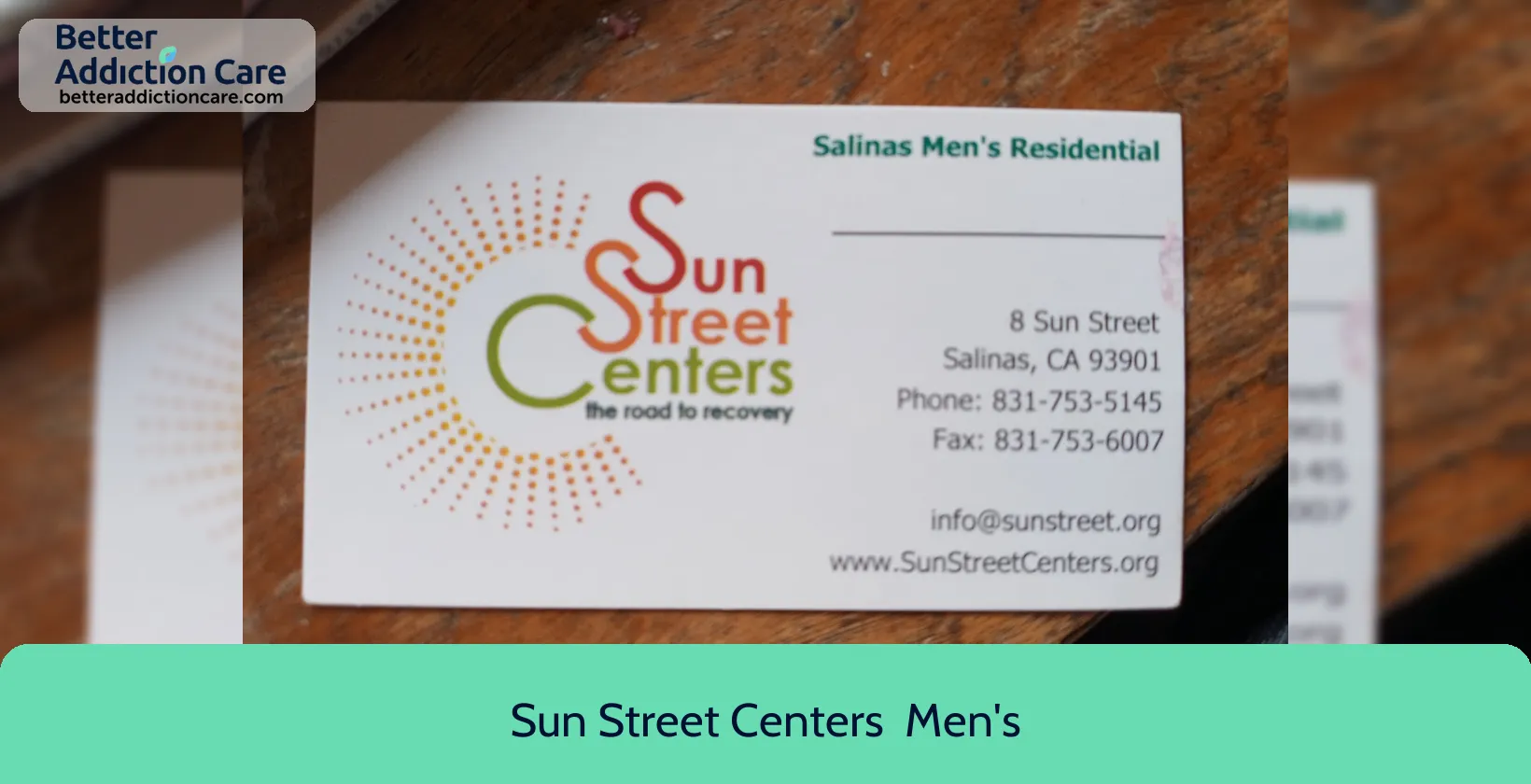Sun Street Centers - Men's Residential Program
Overview
Sun Street Centers is a rehab center that focuses on helping people with drug, alcohol, and substance use problems. This center is in Salinas, California, and it has a Men's Residential Program based on the ideas of Social Model healing. This method focuses on a system of peer-to-peer help in which people are seen as students instead of patients. Twelve-step groups, like AA and NA, are an important part of the recovery process and are a big part of the program.
Sun Street Centers uses both the 12-step model and the Matrix Program. The Matrix Program is a structured and evidence-based approach that gives people the information, support, and tools they need to stop using drugs and alcohol and stay clean. The program tries to start people on a long-term path to recovery by giving them a complete plan that covers all the different parts of addiction.
Both a license and an approval from the State Department of Health Care Services show that Sun Street Centers is committed to high standards of care. The center is also approved by CARF and the California Consortium of Addiction Programs and Professionals (CCAPP), which means that the care it provides is of a very high quality.
Sun Street Centers - Men's Residential Program at a Glance
Payment Options
- Private health insurance
- Cash or self-payment
- Self-pay options
Assessments
- Comprehensive substance use assessment
Age Groups
- Adults
- Young adults
Ancillary Services
- Social skills development
- Psychosocial rehabilitation services
- Family psychoeducation
- Education services
Highlights About Sun Street Centers - Men's Residential Program
6.76/10
With an overall rating of 6.76/10, this facility has following balanced range of services. Alcohol Rehabilitation: 8.00/10, Drug Rehab and Detox: 6.31/10, Insurance and Payments: 6.00/10, Treatment Options: 6.73/10.-
Alcohol Rehabilitation 8.00
-
Treatment Options 6.73
-
Drug Rehab and Detox 6.31
-
Insurance and Payments 6.00
Accreditations
Commission on Accreditation of Rehabilitation Facilities (CARF):

CARF accreditation is a globally recognized certification for rehabilitation and human service organizations. It signifies that an organization meets high-quality standards and is committed to providing top-level care. Achieving CARF accreditation involves a rigorous evaluation process, including on-site surveys. This accreditation enhances an organization's reputation, instills trust in clients and funders, and encourages ongoing excellence in the field.
State department of health:

Government agencies issue State Licenses, which grant rehabilitation organizations permission to conduct their operations lawfully within specific geographic regions. Licenses needed to operate are typically determined by the type of rehabilitation program offered by the facility and its physical location.
Treatment At Sun Street Centers - Men's Residential Program
Treatment Conditions
- Alcoholism
- Opioid Addiction
- Substance use treatment
Care Levels
- Detoxification
- Hospital inpatient treatment
Treatment Modalities
- 12-step facilitation
- Family counseling
- Individual psychotherapy
- Group counseling
- Matrix Model
Get Help Now
Common Questions About Sun Street Centers - Men's Residential Program
Contact Information
Other Facilities in Salinas

6.68
DISCLAIMER: The facility name, logo and brand are the property and registered trademarks of Door To Hope - The Door, and are being used for identification and informational purposes only. Use of these names, logos and brands shall not imply endorsement. BetterAddictionCare.com is not affiliated with or sponsored by Door To Hope - The Door.

